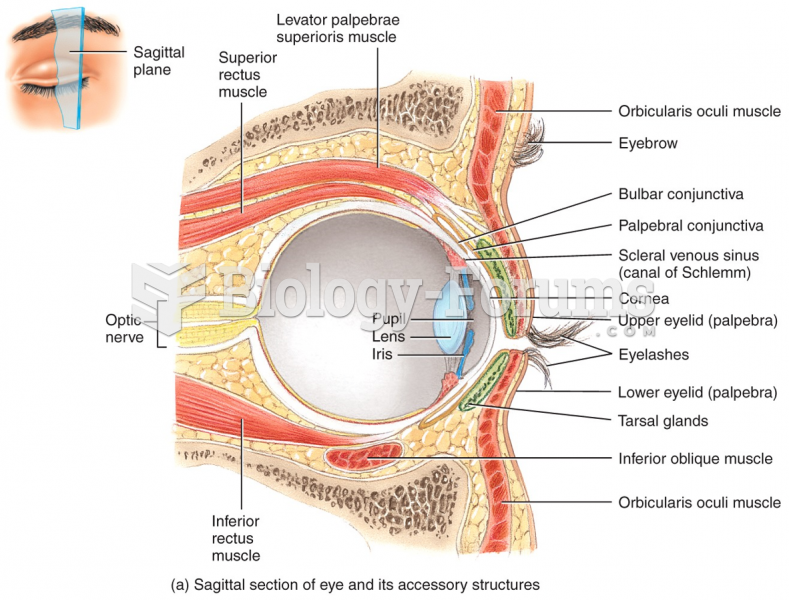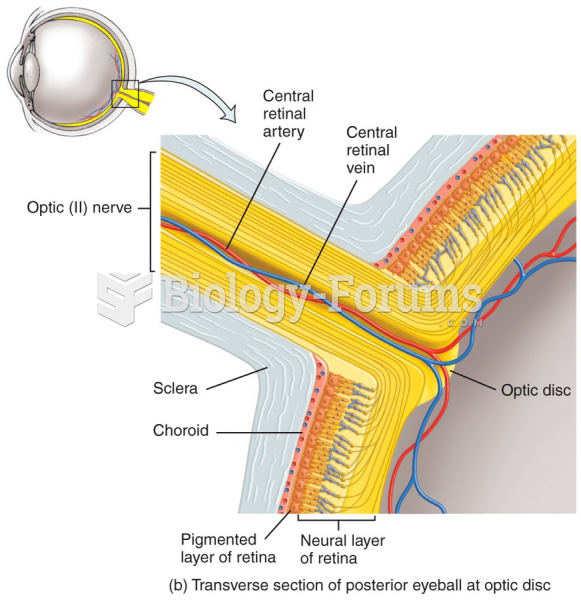|
|
|
The effects of organophosphate poisoning are referred to by using the abbreviations “SLUD” or “SLUDGE,” It stands for: salivation, lacrimation, urination, defecation, GI upset, and emesis.
There are major differences in the metabolism of morphine and the illegal drug heroin. Morphine mostly produces its CNS effects through m-receptors, and at k- and d-receptors. Heroin has a slight affinity for opiate receptors. Most of its actions are due to metabolism to active metabolites (6-acetylmorphine, morphine, and morphine-6-glucuronide).
The calories found in one piece of cherry cheesecake could light a 60-watt light bulb for 1.5 hours.
Between 1999 and 2012, American adults with high total cholesterol decreased from 18.3% to 12.9%
Cucumber slices relieve headaches by tightening blood vessels, reducing blood flow to the area, and relieving pressure.







